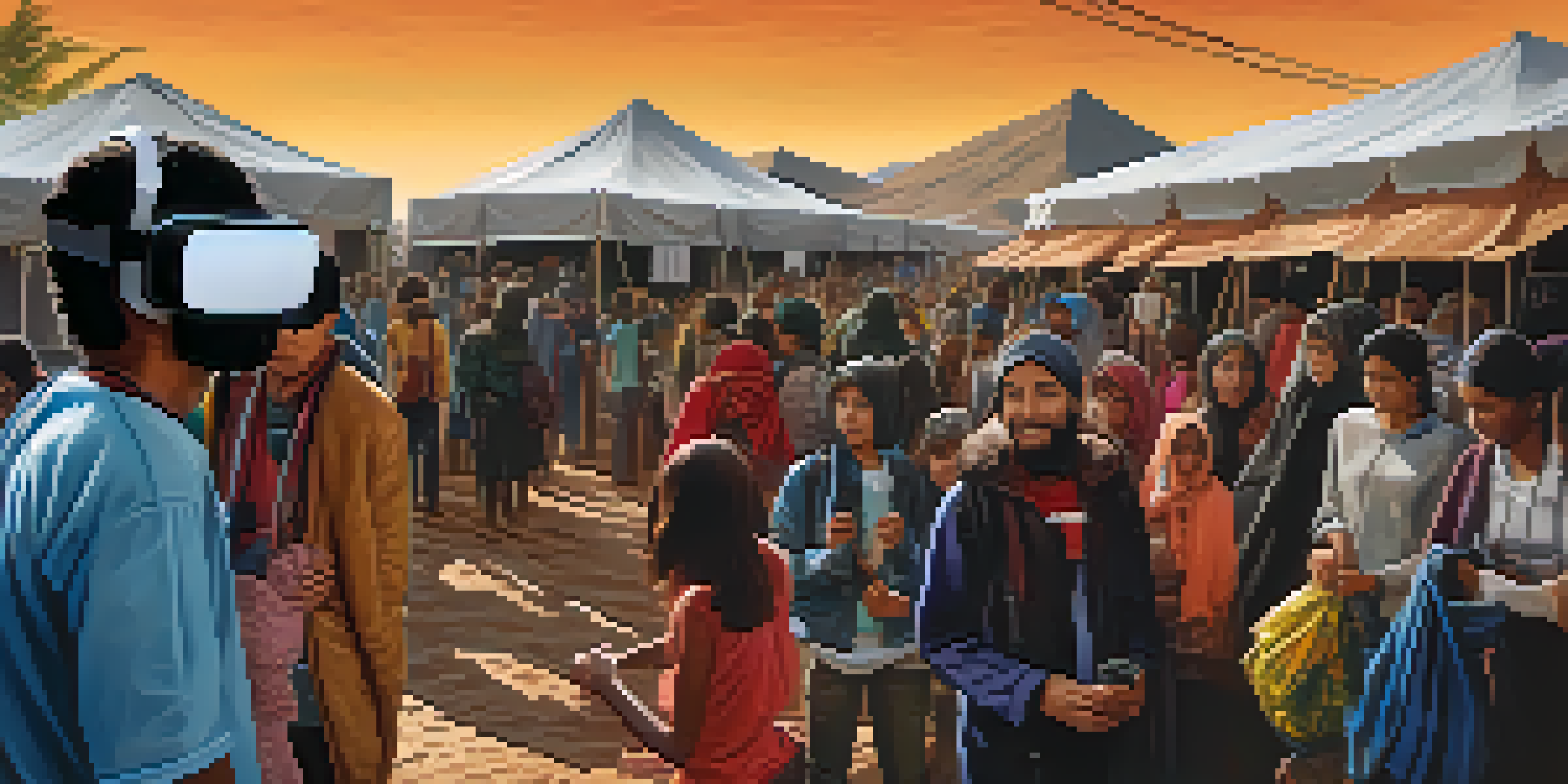Virtual Reality as a Medium for Social and Political Commentary

Understanding Virtual Reality as a Medium
Virtual reality (VR) is an immersive technology that transports users to a digital environment, allowing them to experience scenarios in a visceral way. Unlike traditional media, VR engages multiple senses, making the experience more impactful. This unique quality positions VR as a powerful medium for social and political commentary, as it can evoke empathy and emotional responses that conventional narratives may struggle to achieve.
Empathy Building Through Immersive Experiences
One of the most compelling aspects of VR is its ability to foster empathy. For instance, a VR experience that simulates the life of a refugee can provide users with a firsthand understanding of their struggles. This immersive storytelling can break down barriers and challenge preconceptions, encouraging viewers to see issues from different perspectives.
VR Fosters Deep Empathy
Virtual reality immerses users in experiences that promote understanding and empathy towards complex social issues.
Activism and VR: Engaging Audiences Effectively
Activists are increasingly leveraging VR to draw attention to societal issues. For example, experiences created around climate change allow users to witness the impact of environmental degradation in real-time. This engaging approach not only raises awareness but can also inspire action, as participants feel a personal connection to the cause.
Challenges of Using VR for Commentary
Despite its potential, using VR for social and political commentary comes with challenges. High costs and technical barriers can limit accessibility for creators and audiences alike. Additionally, there is the risk of oversimplifying complex issues, as the immersive nature of VR might lead to a focus on emotional responses rather than critical thinking.
Challenges in VR Engagement
While VR has the potential for impactful commentary, high costs and risk of oversimplification can hinder its effectiveness.
Case Studies: Successful VR Projects
Several successful VR projects demonstrate the medium's potential for social commentary. For example, 'The 360-Degree Video Experience' provides viewers with a glimpse into the lives of marginalized communities, showcasing their stories authentically. These projects often go viral, amplifying their reach and impact, proving that VR can be a catalyst for change.
The Role of Storytelling in VR Experiences
At the heart of effective VR commentary is storytelling. A well-crafted narrative can draw users in, making them feel like active participants rather than passive observers. For instance, using interactive elements allows users to make choices that affect the outcome of the story, deepening their engagement and understanding of the issues at hand.
Storytelling Enhances VR Impact
Effective storytelling in VR transforms users into active participants, deepening their connection to the narrative and issues presented.
Future of VR in Social and Political Discourse
Looking ahead, the future of VR as a medium for social and political commentary appears promising. With advancements in technology and decreasing costs, more creators can explore this dynamic space. As audiences grow more accustomed to immersive experiences, VR may become a staple in social discourse, challenging narratives and inspiring collective action.
Conclusion: The Transformative Power of VR
In conclusion, virtual reality holds transformative potential for social and political commentary. By immersing users in impactful narratives, it fosters empathy and encourages civic engagement. As this medium continues to evolve, it is essential for creators to harness its power responsibly, ensuring that the stories told are inclusive, authentic, and thought-provoking.